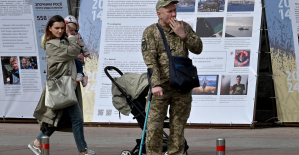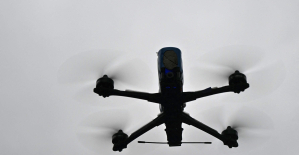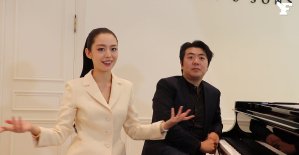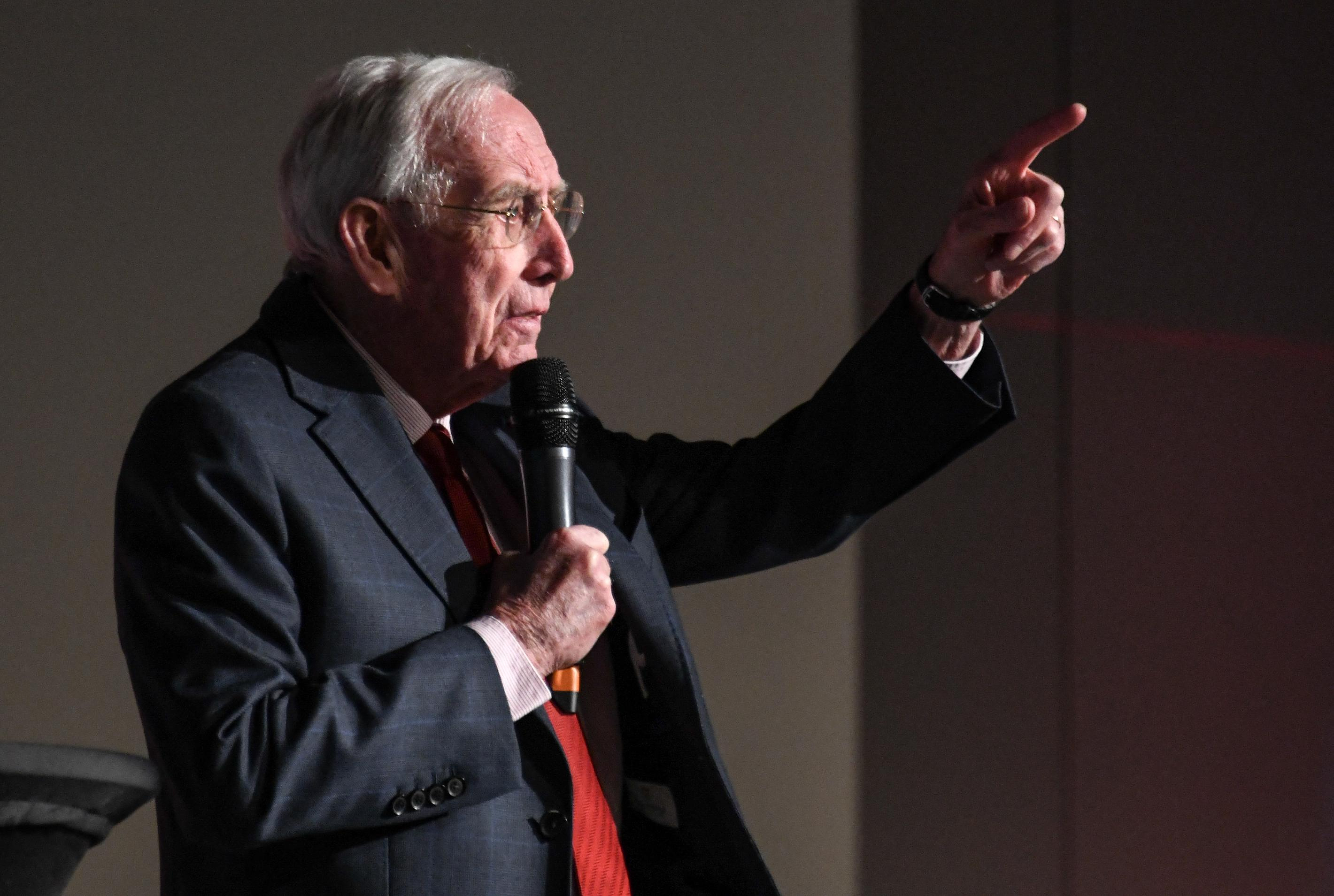We are not all equal in the face of Covid-19. Individually, the pandemic has highlighted a striking disparity in the severity of symptoms due to SARS-CoV-2. While some people remained asymptomatic, others fought for survival and many did not resist. But it also seemed true across populations, with some ethnic groups and countries more or less affected than others. However, it is not easy to distinguish between the genetic origins of these differences and the possible cultural or sociological explanations.
The Human Evolutionary Genetics Unit at the Institut Pasteur, led by geneticist Lluis Quintana-Murci, has looked into this problem. In a study published in Nature, researchers shed light on how genetic history and previous infections at the population level may have shaped the current immune response to the SARS-CoV-2 virus, which could explain some variations clinical observations according to ethnic origins.
“In action, we did not know if human populations really presented different immune responses to Covid-19”, explains Lluis Quintana-Murci, also a professor at the Collège de France. “We only knew that there were differences between individuals”. However, these immune responses could also depend on a disparity that already exists at the population level. Based on this predicate, the scientists therefore embarked on a large-scale study to better understand the origin of the diversity of immune responses to SARS-CoV-2, among populations of different ethnic and geographical origins.
” READ ALSO – The multiple, and sometimes unrecognized, facets of the immune system
To study the variability of these responses, the scientists performed experiments in which they exposed immune blood cells from 222 healthy donors from Central Africa, Western Europe and the United States to the SARS-CoV-2 virus. East Asia. They found that 900 genes responded differently to SARS-CoV-2 across populations. These differences would be partly attributable to the existence of a variable proportion of immune cells. In other words, an African, a European and an Asian are not on an equal footing when the same virus infects them (in this case SARS-CoV-2).
“In our study, we showed that the rate of infection with a common but often harmless virus, cytomegalovirus, was not identical between populations: nearly 99% of the population of Central Africa was seropositive for cytomegalovirus , against 50% of the population of East Asia and 32% of Europeans”, explains Professor Quintana-Murci. “It is therefore highly likely that the latent cytomegalovirus infection led the different populations to produce immune cells in unequal quantities.”
But it's not just a matter of quantities. These cells are also not quite the same genetically. They will therefore not be equivalent in terms of effectiveness against a given pathogen. The origin of these differences is both environmental and genetic. As individuals do not live in the same environment, they are not exposed to the same pathogens, both individually, but also for generations. Their innate immune memory (inherited from their parents, the result of numerous events of natural selection) and acquired (during their existence), is therefore not the same.
The researchers have thus identified hundreds of genetic mutations associated with a different immune response to Sars-Cov2. And these are not present in all populations in the same proportions. According to the researchers, some of these mutations would have been especially beneficial in East Asian populations over time. "This suggests that Asians have long been subject to environmental pressures from coronaviruses, compared to Africans and Europeans," said Maxime Rotival, who co-led the study. It would be the result of an evolutionary history of at least 25,000 years, they estimate.
” READ ALSO – When natural selection helps us fight viruses
Researchers are also establishing a link between the genetic heritage of our Neanderthal ancestors and the immune response of current populations. “Between 1.5 and 2% of the genome of Europeans and Asians come from Neanderthal man, while African populations do not carry DNA of Neanderthal origin,” recalls Lluis Quintana-Murci. Previous studies had already identified a probable link between a mutation of Neanderthal origin and the severity of Covid-19 symptoms. In this study, researchers identified dozens of Neanderthal mutations that affect our immune response to SARS-CoV-2. For the first time, they have brought to light the complex mechanisms through which this "Neanderthalness", in the words of Professor Quintana-Murci, affects our current immune response. “For example, a mutation in the IFNAR2 gene, which decreases the severity of Covid-19, increases the expression of this gene in certain T lymphocytes. However, this mutation in this key gene for the antiviral response is present in 57% of Asians but only among 17% of Africans and 33% of Europeans,” says Lluis Quintana-Murci. “If we apply this to “real” life, we believe that knowing the frequency and effect of these mutations in human populations would make it possible to set up more personalized treatments upstream, depending on our genetic heritage, in particular identifying individuals most at risk. »

 BBVA ADRs fall almost 2% on Wall Street
BBVA ADRs fall almost 2% on Wall Street Ukraine has lost 10 million inhabitants since 2001... and could lose as many by 2050
Ukraine has lost 10 million inhabitants since 2001... and could lose as many by 2050 Russia: schools will train children to use drones at the start of the school year
Russia: schools will train children to use drones at the start of the school year Austria: incestuous torturer Josef Fritzl, nicknamed the “national monster”, could soon be released
Austria: incestuous torturer Josef Fritzl, nicknamed the “national monster”, could soon be released Sánchez cancels his agenda and considers resigning: "I need to stop and reflect"
Sánchez cancels his agenda and considers resigning: "I need to stop and reflect" The Federal Committee of the PSOE interrupts the event to take to the streets with the militants
The Federal Committee of the PSOE interrupts the event to take to the streets with the militants Repsol: "We want to lead generative AI to guarantee its benefits and avoid risks"
Repsol: "We want to lead generative AI to guarantee its benefits and avoid risks" Osteoarthritis: an innovation to improve its management
Osteoarthritis: an innovation to improve its management Ukraine gets a spokesperson generated by artificial intelligence
Ukraine gets a spokesperson generated by artificial intelligence The French will take advantage of the May bridges to explore France
The French will take advantage of the May bridges to explore France Organic flour contaminated by a recalled toxic plant
Organic flour contaminated by a recalled toxic plant 2024 Olympics: Parisian garbage collectors have filed a strike notice
2024 Olympics: Parisian garbage collectors have filed a strike notice Death of Paul Auster: Actes Sud says he is “lucky” to have been his publisher in France
Death of Paul Auster: Actes Sud says he is “lucky” to have been his publisher in France Lang Lang, the most French of Chinese pianists
Lang Lang, the most French of Chinese pianists Author of the “New York Trilogy”, American novelist Paul Auster has died at the age of 77
Author of the “New York Trilogy”, American novelist Paul Auster has died at the age of 77 To the End of the World, The Stolen Painting, Border Line... Films to watch this week
To the End of the World, The Stolen Painting, Border Line... Films to watch this week Omoda 7, another Chinese car that could be manufactured in Spain
Omoda 7, another Chinese car that could be manufactured in Spain BYD chooses CA Auto Bank as financial partner in Spain
BYD chooses CA Auto Bank as financial partner in Spain Tesla and Baidu sign key agreement to boost development of autonomous driving
Tesla and Baidu sign key agreement to boost development of autonomous driving Skoda Kodiaq 2024: a 'beast' plug-in hybrid SUV
Skoda Kodiaq 2024: a 'beast' plug-in hybrid SUV The home mortgage firm rises 3.8% in February and the average interest moderates to 3.33%
The home mortgage firm rises 3.8% in February and the average interest moderates to 3.33% This is how housing prices have changed in Spain in the last decade
This is how housing prices have changed in Spain in the last decade The home mortgage firm drops 10% in January and interest soars to 3.46%
The home mortgage firm drops 10% in January and interest soars to 3.46% The jewel of the Rocío de Nagüeles urbanization: a dream villa in Marbella
The jewel of the Rocío de Nagüeles urbanization: a dream villa in Marbella Europeans: a senior official on the National Rally list
Europeans: a senior official on the National Rally list Blockade of Sciences Po: the right denounces a “drift”, the government charges the rebels
Blockade of Sciences Po: the right denounces a “drift”, the government charges the rebels Even on a mission for NATO, the Charles-de-Gaulle remains under French control, Lecornu responds to Mélenchon
Even on a mission for NATO, the Charles-de-Gaulle remains under French control, Lecornu responds to Mélenchon “Deadly Europe”, “economic decline”, immigration… What to remember from Emmanuel Macron’s speech at the Sorbonne
“Deadly Europe”, “economic decline”, immigration… What to remember from Emmanuel Macron’s speech at the Sorbonne These French cities that will boycott the World Cup in Qatar
These French cities that will boycott the World Cup in Qatar NBA: with 46 points, Maxey saves Philadelphia single-handedly
NBA: with 46 points, Maxey saves Philadelphia single-handedly Tennis: a Nadal-Alcaraz double at the 2024 Olympics? “If all goes well, yes,” replies the cadet
Tennis: a Nadal-Alcaraz double at the 2024 Olympics? “If all goes well, yes,” replies the cadet Tennis: “Actually it was a joke, I’ll come back next year!”, Nadal bids farewell to Madrid with humor and emotion
Tennis: “Actually it was a joke, I’ll come back next year!”, Nadal bids farewell to Madrid with humor and emotion Bayern Munich-Real Madrid: “Everything is still in our hands”, welcomes Manuel Neuer
Bayern Munich-Real Madrid: “Everything is still in our hands”, welcomes Manuel Neuer
















